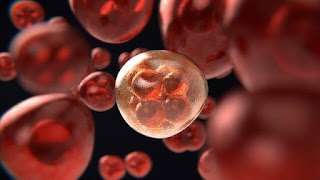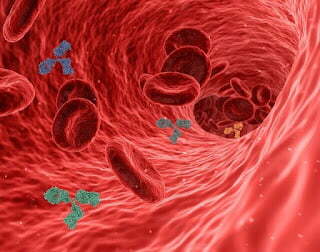How many cells are obtained in 15 years old children? This simple question has a simple answer- there is no safe counting of cells because cells are extremely small and therefore cannot be counted very accurately. But in this article, you will get approximately the number of cells found in a 15 years old child and an adult human body.
Tell us about the truth in the comment box: Have you ever thought about how many cells are obtained from 15 years old children? In this article, you will get a correct answer to your question. So keep reading this article and you will have full knowledge of it.
Have you ever thought about the topic that how many cells are in your body? You’re not alone. Scientists are still debating the exact number, which currently remains a puzzle. But they provide an approx value for it.
The short answer to this question is that the average male body has around 30 to 40 trillion cells, and a 15 years old or teenager has trillion cells.

The long answer is that scientists don’t yet know the exact number. Also, it depends on whether or not you include the bacteria present in and on our body.
The majority of cells in our body are actually red blood cells. Although they make up over 80% of our body, they make up only about 4% of the total body mass. Indeed, red blood cells measure on average only 8 micrometers in diameter, which is 10 times smaller than an average human hair.
In contrast, the average size of a fat cell is 100 microns. Although fat cells make up almost 19% of body mass, they contribute less than 0.2% of the total number of cells.
Many years ago a group of scientists did great research to count the number of cells in the human body, but it is not that easy. You can mark their searches in red and learn more about the results they found after searching.
A team of scientists from Italy, Greece, and Spain admits they are not the first to tackle this question. They looked at scientific journals and books from the past two centuries and found many estimates.
But these estimates spanned a wide range, from 5 billion to 200 million billion cells. And hardly any of the scientists who came up with these numbers provided an explanation for how they came up with them. Obviously, this is a ripe subject for research.
The research found that the average weight of a cell is 1 nanogram. In the case of an adult human who has about 70 Kg, a simple calculation leads to conclude that an adult human has about 70 trillion cells on average. This is not a perfect counting.
On the other hand, it is also possible to make this calculation according to the volume of cells. The average volume of a mammalian cell is estimated to be 4 billionths of a cubic centimeter. (To get an idea of this size, see The Scale of the Universe.) Based on the typical volume of an adult man, you could conclude that the human body contains 15 trillion cells.
So if you choose the volume or the weight, you get drastically different numbers. To make matters worse, our bodies are not filled with cells evenly, like a jar full of jelly beans. Cells are of different sizes and they grow in different densities.
Look at a beaker of blood, for example, and you will find that the red blood cells are squeezed. If you use their density as a medium or source to estimate the number of cells present in a human body, so you would come up with a staggering number of cells which is about 724 trillion cells.
So, the author of the new article set out to estimate the number of cells in the body the hard way, breaking it down by organs and cell types.
(They haven’t tried to count all the microbes that also call our bodies home, sticking only to human cells.)
They scoured the scientific literature for details on volume and density. cells in the gallbladder, knee joints, intestines, bones, bone marrow, and many other tissues. They then came up with estimates of the total number of each cell type.
You can understand this through an example: that we have 50 billion fat cells and 2 billion heart muscle cells.
By adding up all their numbers, the scientists found a drum roll that is 37.2 trillion cells.
This is not a definitive number, but It’s a very good start. While it is true that people can vary in size – and therefore vary in cell number – adult humans do not vary in order of magnitude, except in the movies.
Scientists say with great confidence that the common estimate of one trillion cells in the human body is wrong. But they see their estimate as an opportunity to collaborate – perhaps via an online database assembled by many experts on many different body parts – to focus on a better estimate.

Curiosity is sufficient justification for thinking about the number of cells in the human body, but there may also be scientific advantages to determining the number. Scientists discover the human body by building sophisticated computer models of lungs, hearts, and other organs. If these models have ten times as many cells as real organs do, their results may deviate altogether.
The number of cells in an organ also affects certain medical conditions. The authors of the new study find that a healthy liver contains 240 billion cells, for example, but some studies on cirrhosis have found that the diseased organ has only 172 billion.
Perhaps more importantly, the very fact that some 34 trillion cells can cooperate for decades, giving birth to a single human body instead of a chaotic war of selfish microbes, is astonishing. The evolution of even a basic level of multicellularity is quite remarkable.
But our ancestors went far beyond simple sponge-shaped anatomy, evolving a vast collective made up of many different types. To understand this collective on a deep level, we need to know how big it really is.
Why scientists are unable to count the number of cells in the human body?
There are many reasons why scientists or researchers are unable to count the exact numbering of cells present in the human body. Some of the main reasons why scientists are unable to count the exact number of cells in the human body are as follows:
1. Coordinated efforts are lacking:
In 2013, a team of researchers from Greece, Italy, and Spain published an estimate of the number of cells in the body. They used data reported by others on individual organs and some mathematical modeling to get their results.
This article put the cell count at 37.2 trillion, roughly around 0.81 trillion.
Lead author Pierluigi Strippoli, associate professor of applied biology at the University of Bologna in Italy, told Medical News Today that it is “difficult to get accurate data for diffuse systems,” such as blood vessels. and nerves.
2. It is very difficult to count human cells leaving all the bacterial cells present on them:
They did it. The lead author of the study, Ron Milo, associate professor at the Weizman Institute of Science in Rehovot, Israel, and his colleagues published an update in 2016.
In fact, they did two different calculations. The first assesses the number of cells in a 100-kilogram human using an average cell volume of between 1,000 and 10,000 cubic micrometers. This gives them a “back envelope estimate” that ranges between 30 to 40 trillion cells in numbering.
Next, they calculated the actual cell count of the five most common cell types in an average adult male, which make up 97% of the body’s cells. This led them to an estimated output of 30 trillion cells among them the red blood cells (RBCs) make up 84% of it.
But human cells are not the only cells in our body. Although previous studies have estimated that there are 10 times more bacteria in our bodies than human cells, Professor Milo and his colleagues have revised the number to around $ 38 trillion.
Interestingly, although numerous, bacteria are much smaller than human cells and actually only make up 200 grams of total body mass, according to Professor Milo.
But with an almost equal number of cells in our body, one could argue that we are as many bacteria as we are humans, bringing the total number to around 70 trillion.
3. Human cells are extremely small:
We all know that the size of cells in the human body is very small, so it is pretty much impossible to count them. So, scientists cannot find the exact number of cells in the human body, but they give an approximate number of cells in the human body.
Tell yourself an idea on this topic in the comments box below and follow our website for more interesting articles.
